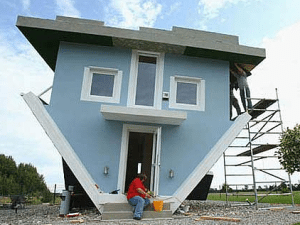
Are foreclosure homes cheaper?
Often, foreclosed homes are sold at below market price to appeal to potential buyers. These properties are more affordable compared to non-foreclosed ones, and house flippers can save money by using them for their fix-and -flip projects.
Are foreclosures cheaper?
It is possible to save a lot of money by buying foreclosed houses, but you need to know where to look. Foreclosed properties can be found at a number of locations, such as local real estate listings online and even sheriff auctions. The prices of these properties are often much lower than similar sales. It's a good idea, therefore, to shop around and find the best deal.
The cheapest foreclosed homes are those that don't sell at public auction, so they're generally off-market. The homes aren't listed on the Multiple Listing System (MLS) but can be found in local papers or by speaking directly to the bank.
They are available in many different locations, including affluent areas and less affluent ones. Before you purchase, check the schools and transport routes in the area. Avoid areas with a high number of abandoned homes.

How to Buy Cheap Foreclosed Homes
You can find cheap foreclosures by contacting lenders to ask them if they are willing to accept loan assumptions that do not require any qualifications. This will allow you purchase the property at a lower price than its market value. This type of loan is common among homeowners who are in foreclosure and do not have time to save up a large deposit.
If you have trouble working with a lending institution to obtain loan assumption, consider looking at government owned homes that are part or special housing program. They are an excellent option for first time homebuyers, as they allow you to purchase a house at a low cost and can be completed much faster than the conventional route.
Following these steps will make it easy to find cheap foreclosed houses:
First, set your budget
These properties are available in many locations but are most often found off-market. The MLS does not list these properties, but you can still find them in local newspapers and online.
Real estate agents who specialize on distressed properties are another option to find foreclosed home. You can find them and negotiate a better price with the sellers.

At public auctions you can also find homes that have been foreclosed. They're often sold at a lower price than the market value to the highest bidding party. These auctions will usually be held at the sheriff's or bank's HQ, so bring lots of cash.
Before you purchase a foreclosed home, have it inspected by a qualified professional. This will help you understand the condition and value of the property, allowing you to make a more informed decision. If the home has any serious problems, they will need to be fixed before closing. You can also ask your real estate agent to recommend a good contractor who can handle the repairs for you.
FAQ
What are the chances of me getting a second mortgage.
Yes. But it's wise to talk to a professional before making a decision about whether or not you want one. A second mortgage is typically used to consolidate existing debts or to fund home improvements.
What amount should I save to buy a house?
It all depends on how long your plan to stay there. Start saving now if your goal is to remain there for at least five more years. If you plan to move in two years, you don't need to worry as much.
How much money do I need to purchase my home?
It all depends on several factors, including the condition of your home as well as how long it has been listed on the market. Zillow.com says that the average selling cost for a US house is $203,000 This
How do I eliminate termites and other pests?
Your home will eventually be destroyed by termites or other pests. They can cause serious damage and destruction to wood structures, like furniture or decks. A professional pest control company should be hired to inspect your house regularly to prevent this.
Statistics
- Private mortgage insurance may be required for conventional loans when the borrower puts less than 20% down.4 FHA loans are mortgage loans issued by private lenders and backed by the federal government. (investopedia.com)
- Some experts hypothesize that rates will hit five percent by the second half of 2018, but there has been no official confirmation one way or the other. (fortunebuilders.com)
- This means that all of your housing-related expenses each month do not exceed 43% of your monthly income. (fortunebuilders.com)
- When it came to buying a home in 2015, experts predicted that mortgage rates would surpass five percent, yet interest rates remained below four percent. (fortunebuilders.com)
- 10 years ago, homeownership was nearly 70%. (fortunebuilders.com)
External Links
How To
How to Manage a Property Rental
Although renting your home is a great way of making extra money, there are many things you should consider before you make a decision. These tips will help you manage your rental property and show you the things to consider before renting your home.
Here's how to rent your home.
-
What should I consider first? Before you decide if you want to rent out your house, take a look at your finances. If you have outstanding debts like credit card bills or mortgage payment, you may find it difficult to pay someone else to stay in your home while that you're gone. Your budget should be reviewed - you may not have enough money to cover your monthly expenses like rent, utilities, insurance, and so on. It may not be worth it.
-
How much does it cost for me to rent my house? There are many factors that influence the price you might charge for renting out your home. These factors include location, size, condition, features, season, and so forth. Keep in mind that prices will vary depending upon where you live. So don't expect to find the same price everywhere. Rightmove estimates that the market average for renting a 1-bedroom flat in London costs around PS1,400 per monthly. This means that you could earn about PS2,800 annually if you rent your entire home. That's not bad, but if you only wanted to let part of your home, you could probably earn significantly less.
-
Is it worth it. Doing something new always comes with risks, but if it brings in extra income, why wouldn't you try it? Be sure to fully understand what you are signing before you sign anything. Renting your home won't just mean spending more time away from your family; you'll also need to keep up with maintenance costs, pay for repairs and keep the place clean. Make sure you've thought through these issues carefully before signing up!
-
Is there any benefit? Now that you have an idea of the cost to rent your home, and are confident it is worth it, it is time to consider the benefits. There are many reasons to rent your home. You can use it to pay off debt, buy a holiday, save for a rainy-day, or simply to have a break. It is more relaxing than working every hour of the day. And if you plan ahead, you could even turn to rent into a full-time job.
-
How do you find tenants? After you have decided to rent your property, you will need to properly advertise it. You can start by listing your property online on websites such as Rightmove and Zoopla. After potential tenants have contacted you, arrange an interview. This will allow you to assess their suitability, and make sure they are financially sound enough to move into your house.
-
How can I make sure I'm covered? If you don't want to leave your home empty, make sure that you have insurance against fire, theft and damage. You will need insurance for your home. This can be done through your landlord directly or with an agent. Your landlord will usually require you to add them as additional insured, which means they'll cover damages caused to your property when you're present. If you are not registered with UK insurers or if your landlord lives abroad, however, this does not apply. In this case, you'll need to register with an international insurer.
-
Sometimes it can feel as though you don’t have the money to spend all day looking at tenants, especially if there are no other jobs. You must put your best foot forward when advertising property. Post ads online and create a professional-looking site. Additionally, you'll need to fill out an application and provide references. While some people prefer to handle everything themselves, others hire agents who can take care of most of the legwork. You'll need to be ready to answer questions during interviews.
-
What happens once I find my tenant If there is a lease, you will need to inform the tenant about any changes such as moving dates. Otherwise, you can negotiate the length of stay, deposit, and other details. It's important to remember that while you may get paid once the tenancy is complete, you still need to pay for things like utilities, so don't forget to factor this into your budget.
-
How do I collect rent? When it comes to collecting the rent, you will need to confirm that the tenant has made their payments. If they haven't, remind them. Any outstanding rents can be deducted from future rents, before you send them a final bill. If you are having difficulty finding your tenant, you can always contact the police. They will not normally expel someone unless there has been a breach of contract. However, they can issue warrants if necessary.
-
What are the best ways to avoid problems? Renting out your house can make you a lot of money, but it's also important to stay safe. You should install smoke alarms and carbon Monoxide detectors. Security cameras are also a good idea. Also, make sure you check with your neighbors to see if they allow you to leave your home unlocked at night. You also need adequate insurance. Finally, you should never let strangers into your house, even if they say they're moving in next door.